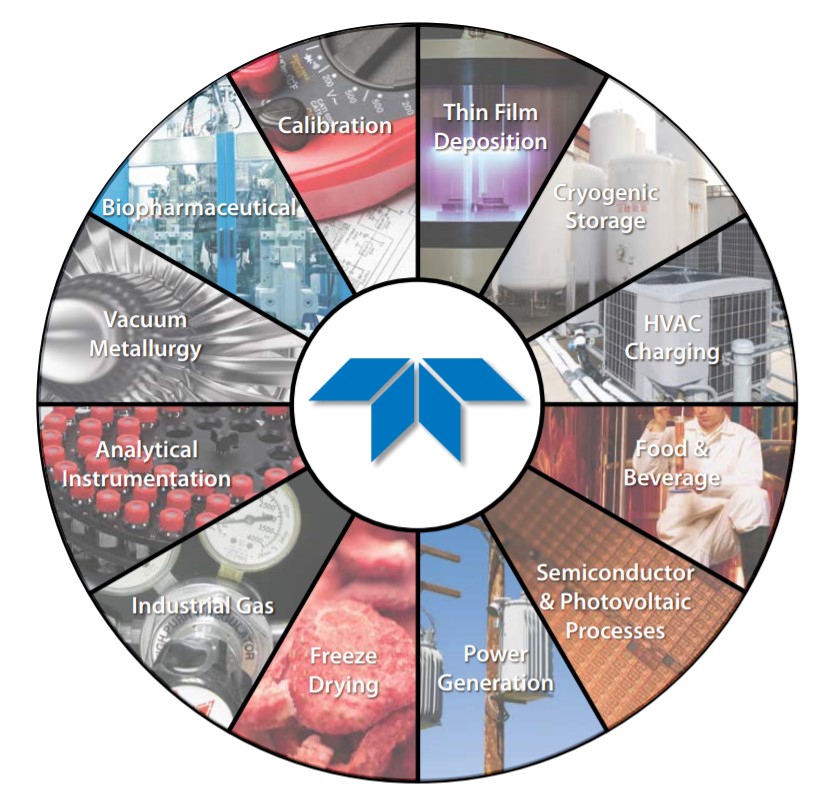Picking an Instrument
All Teledyne Hastings mass flow controllers and meters are configured for your specific conditions to give an easy-to-use flow instrument that provides an accurate flow measurement. To see available options, refer to the back section of each product bulletins. Some basic considerations when choosing a flow instrument include:
While there are additional factors that should also be considered, such as communication, pressure drop and ambient temperature, these three factors are a great place to start when determining which flow instrument is suited to your application.
If you need help converting mass flow into volumetric flow or converting it into different units, then Teledyne Hastings has developed a thermal mass flow calculator to help determine your new flow rate. In standardized volumetric flow units (sccm, slm, scfm,), the reference conditions, or “STP" temperature and pressure, define the amount of gas by determining the number of molecules using the Ideal Gas Law. In many cases, the selected reference conditions are 0°C & 760 Torr. However, other reference conditions are also used, such as 25°C & 760 Torr, or 70°F & 760 Torr.
Example Order for a Thermal Flow Meter:
HFM-D-300B(H) Digital Thermal mass flow meter
FS Range: 1 SLM Natural Gas & Compressed Air (2 Calibrated Gas Records)
STP: 0° C and 760 Torr
Output: (01) 0-5 vdc (Standard)
Fittings: (02) 1/4" Swagelok (Standard)
Working Pressure: (01) 500 psig (Standard)
Calibration Records: (02) 2 Calibration Certificates
Digital: (01) RS232 (Standard)
Calibration Type: (01) NIST 5 Point (Standard)
Display: (01) Optional Touch Screen Display (Standard)
What We Offer
- Expert first contact
- Fast and easy product evaluation
-
Customized solutions
- Design-in support
- Lifetime application support
Key Applications
 Teledyne Hastings has used our 75 years’ worth of experience to create
application notes for our customers. These are valuable technical resources that go into detail about how our flow instruments can be used in various applications. We also have other valuable technical resources like our
mass flow glossary,
webinars and
product videos. Some of our key applications include the following:
Teledyne Hastings has used our 75 years’ worth of experience to create
application notes for our customers. These are valuable technical resources that go into detail about how our flow instruments can be used in various applications. We also have other valuable technical resources like our
mass flow glossary,
webinars and
product videos. Some of our key applications include the following:

